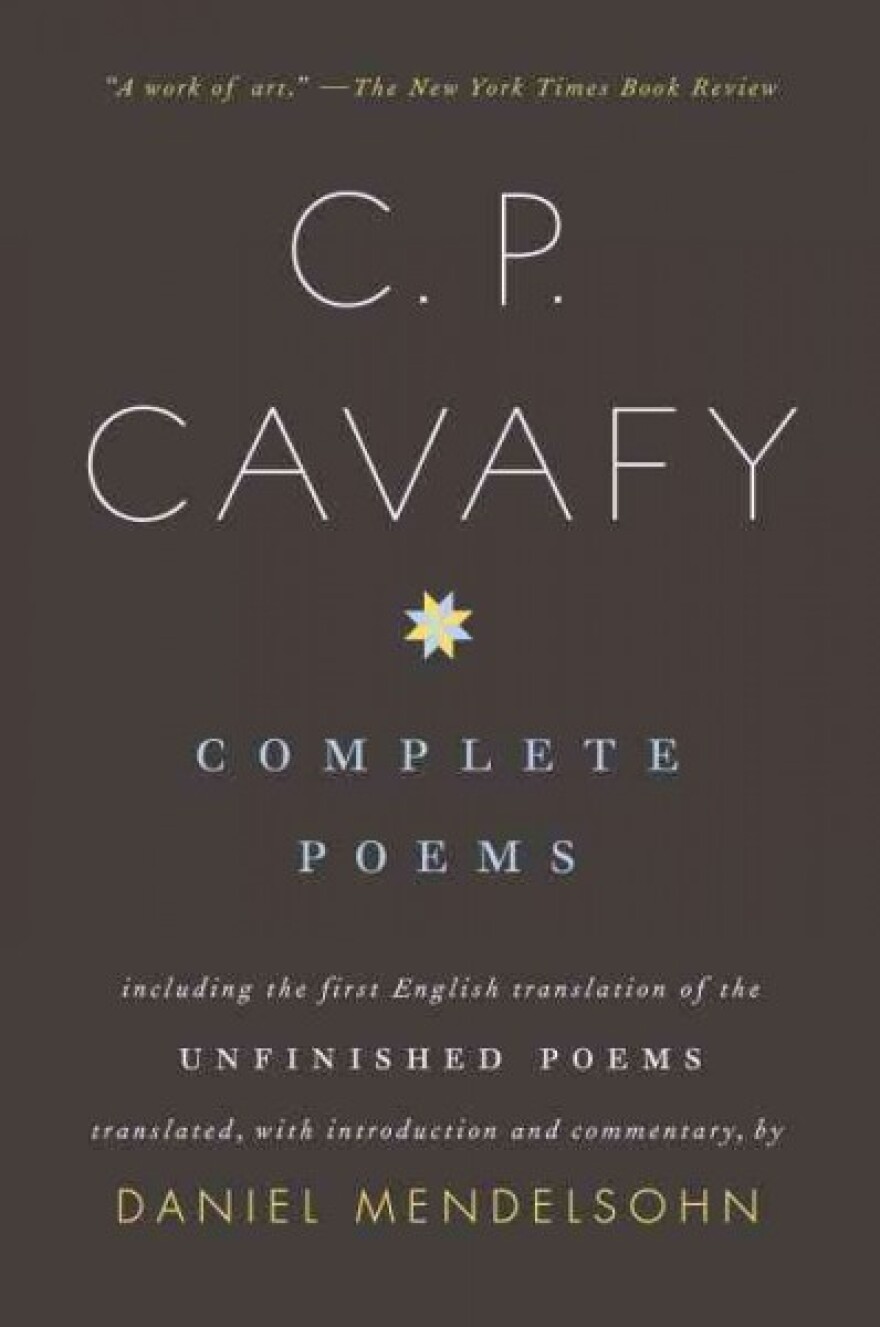Fiction and nonfiction releases from Daniel Orozco, Donald Rumsfeld, Jim Axelrod and Simon Kuper.
Copyright 2024 NPR. To see more, visit https://www.npr.org.
New In Paperback May 28-June 3
Orientation

by Daniel Orozco
Readers who like challenging books that explore contemporary issues and reveal new insights into how we live our lives may enjoy Daniel Orozco's Orientation, says book critic Rigoberto Gonzalez. He describes it as "a book of short stories that are linked by the idea that in each story a character is being oriented to a new job. It might be in an office or a factory, but no matter where it is, these positions make them invisible. Orientation is an exploration of what dehumanizing jobs do to people's psyches, to their personalities and to the way they look at the world."
C. P. Cavafy Complete Poems

by C. P. Cavafy and Daniel Mendelsohn
During World War I, English novelist E.M. Forster met a Greek poet named Constantine Petrou Cavafy. He later described C.P. Cavafy as a Greek gentleman in a straw hat standing absolutely motionless at a slight angle to the universe. Author and critic Daniel Mendelsohn, who spent 12 years translating Cavafy's entire works, adds that the poet's position at the edge of the Greek diaspora in Alexandria, Egypt, and as a gay man also put him at an angle to the social world of his time. He was "a poet who was only interested really in one subject," Mendelsohn tells NPR's Jacki Lyden, "which is time and the passage of time, and how it affects how you see the past, whether that past is a Byzantine emperor's failed attempts to restore the empire or one's own love affair with a beautiful boy in Alexandria in 1892."
Known and Unknown

by Donald Rumsfeld
"Although containing no bombshell disclosures about the Bush administration's internal deliberations, this memoir by former Secretary of Defense Donald Rumsfeld does constitute a substantive critique and adds fresh details," journalist and author Bradley Graham writes. "Further, the trove of previously classified documents and private memos that he has promised to release on his website should be helpful to historians, not to mention the just-curious. No doubt Rumsfeld loyalists will applaud his book for its forceful defense of the Iraq War and its critical portrayals of Colin Powell, Condoleezza Rice and L. Paul Bremer III. But Rumsfeld's legion of detractors will again be frustrated and angered by the former defense secretary's continued refusal to acknowledge more personal responsibility for the war's mismanagement, the mistreatment of detainees in U.S. custody, and the infighting that plagued the Bush administration."
In The Long Run

by Jim Axelrod
"The goal at the end of Jim Axelrod's touching memoir, In the Long Run, is a marathon, but in 304 pages he talks about running surprisingly little," observes writer Liz Colville. "His focus is the parts of his life that drive him to start running in the first place, particularly his demanding career as a CBS political correspondent. In Axelrod's case, he can't fully commit to his goal — the 2009 New York City Marathon — until he has hit rock bottom ... The carrot dangling in front of him is his late father, Bob, who at times was his son's biggest fan and at others treated everyone in his life as a nuisance. The elder Axelrod charms and torments his son from the grave; Jim's decision to run a marathon is largely a competitive one, but it becomes something far loftier by the time he crosses the finish line in Central Park."
Soccernomics

by Simon Kuper and Stefan Szymanski
Piggybacking on the success of the pop-econ book Freakonomics, writer Simon Kuper and economist Stefan Szymanski have joined forces for Soccernomics. Soccer fan and writer Cord Jefferson explains: "Unlike baseball fans, soccer supporters are notoriously averse to numbers — that's what makes Kuper and Szymanski's research so important. Using data about seemingly unrelated topics — like scoring percentages and racism — the authors piece together fascinating theories about how soccer has evolved and where it's headed. They're so compelling that you might forget how ugly soccer can be."

